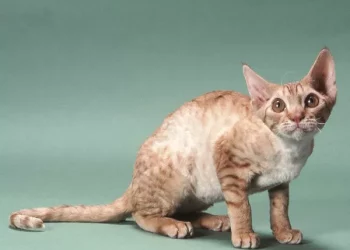Cockatiels are delightful and sociable birds, cherished by bird enthusiasts for their charming personality and vibrant plumage. However, it can be concerning for pet owners when their feathered friend starts losing feathers, especially on their head. Feather loss in cockatiels can have various causes, ranging from natural molting to underlying health issues. In this article, we will explore the common reasons behind feather loss in cockatiels and provide helpful tips to address the issue.
-
Natural Molting
One of the most common reasons for feather loss in cockatiels is natural molting. Molting is a natural process in which birds shed old, worn-out feathers to make room for new ones. It typically occurs once or twice a year and can last for a few weeks. During this time, you may notice feather loss, particularly on the head and neck.
Remedy: Molting is a natural occurrence, and there is usually no cause for concern. Provide your cockatiel with a balanced diet rich in protein, vitamins, and minerals to support healthy feather growth. Ensure your bird has access to a bathing dish to help them clean and maintain their feathers.
-
Poor Nutrition
Inadequate nutrition can contribute to feather loss in cockatiels. A lack of essential nutrients, especially protein, can lead to weak or brittle feathers, causing them to fall out more easily. Additionally, deficiencies in vitamins, such as vitamin A, can result in feather abnormalities.
Remedy: Offer your cockatiel a well-balanced diet consisting of high-quality pellets, fresh vegetables, fruits, and occasional seeds. Consult with an avian veterinarian to ensure your bird’s nutritional needs are being met, and consider adding avian-specific vitamin and mineral supplements if necessary.
-
Stress and Anxiety
Cockatiels are sensitive creatures that can experience stress and anxiety, which may manifest as feather loss. Changes in their environment, such as moving to a new home, introduction of new pets, or loud noises, can trigger stress responses in birds. Additionally, lack of mental stimulation and social interaction can lead to anxiety and self-destructive behaviors, including excessive preening and feather plucking.
Remedy: Provide a secure and stimulating environment for your cockatiel. Offer plenty of toys, perches, and opportunities for exercise. Spend quality time with your bird, engaging in activities like training, talking, and gentle handling. Ensure that their cage is in a quiet, calm area of your home, away from potential stressors.
-
External Parasites
Feather loss can also be caused by external parasites such as mites or lice. These tiny creatures feed on the bird’s feathers, causing irritation, itching, and subsequent feather loss.
Remedy: Regularly inspect your cockatiel’s feathers and skin for signs of parasites, such as tiny moving dots or unusual scratching behavior. If you suspect infestation, consult with an avian veterinarian who can recommend appropriate treatments such as sprays or powders to eliminate the parasites.
-
Health Issues
In some cases, feather loss may be an indication of underlying health problems. Conditions like fungal or bacterial infections, hormonal imbalances, liver disease, or thyroid disorders can result in feather loss in cockatiels.
Remedy: If you notice persistent or severe feather loss, accompanied by other symptoms such as weight loss, changes in behavior, or abnormalities in droppings, seek immediate veterinary attention. A qualified avian veterinarian can conduct thorough examinations and diagnostic tests to identify and address any underlying health issues.
Conclusion
Feather loss in cockatiels can be a cause for concern, but understanding the underlying reasons can help you take appropriate action. Whether it’s molting, poor nutrition, stress, external parasites, or health issues, addressing the root cause is essential. By providing a balanced diet, a stress-free environment, and regular veterinary check-ups, you can support your cockatiel’s overall health and well-being, ensuring their beautiful plumage remains intact for years to come.
Recommended reading:

























